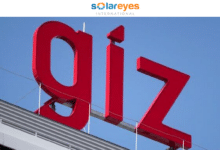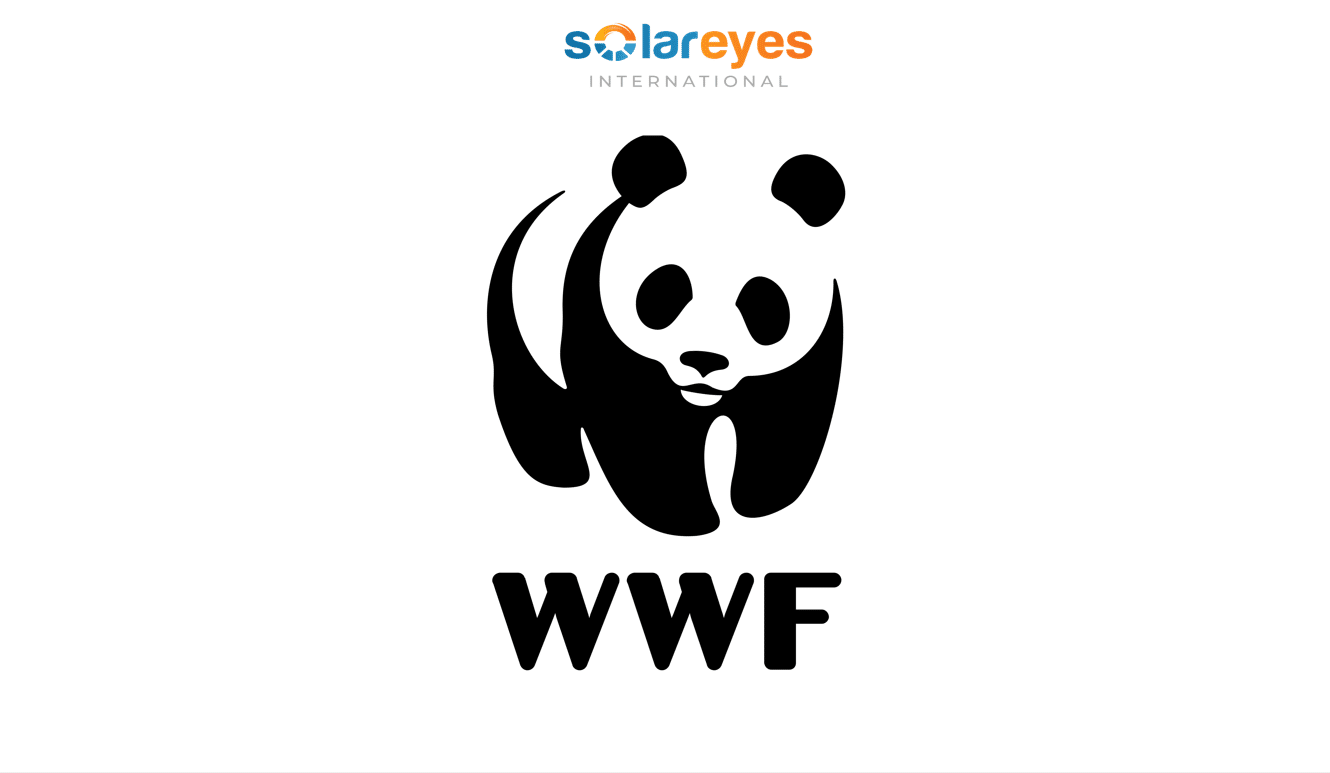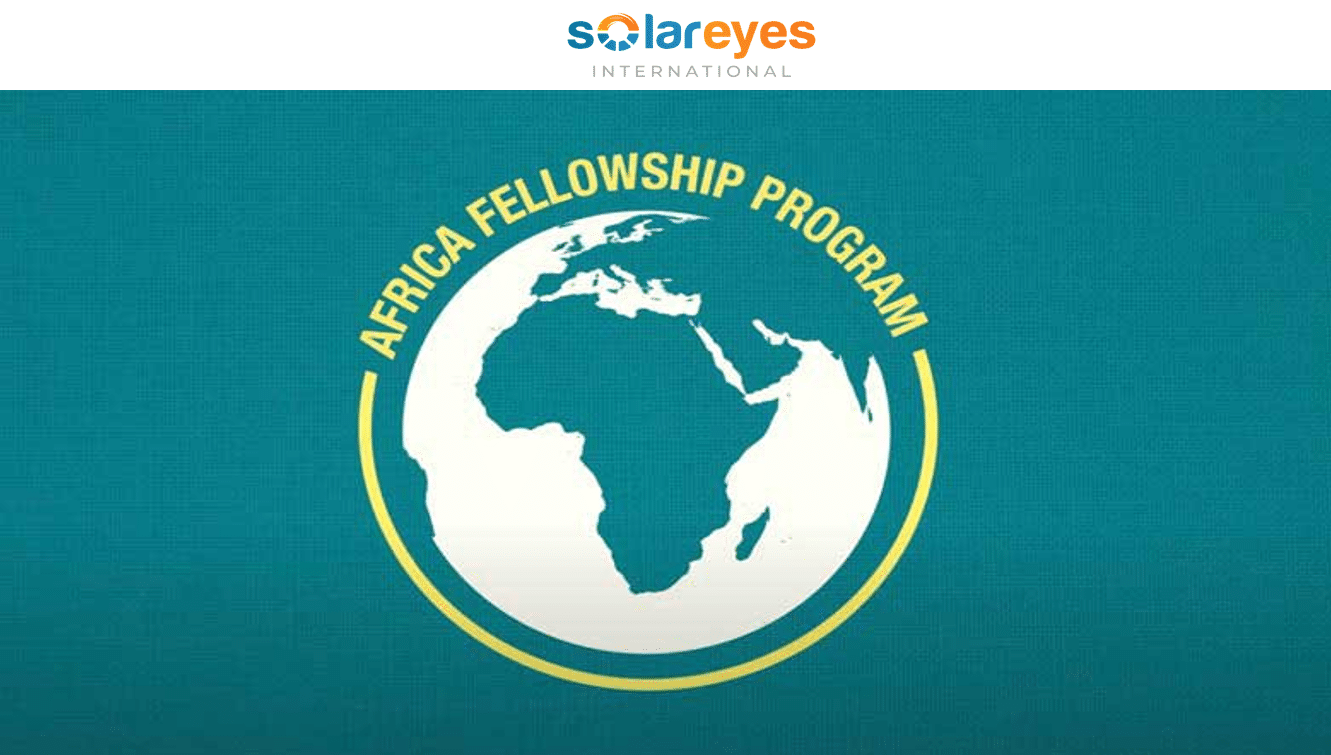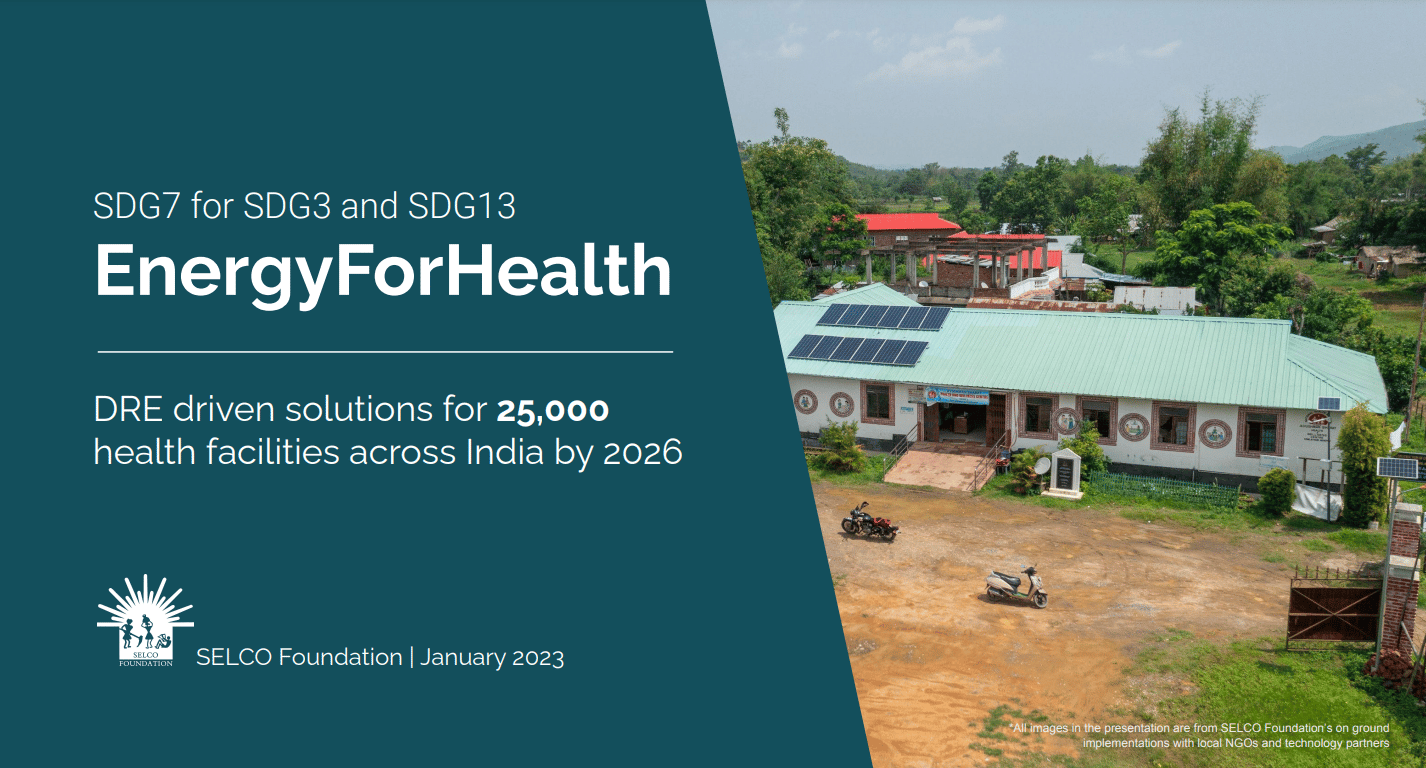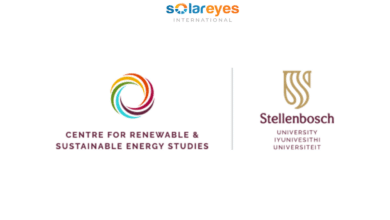Call for Applications: Heinrich Böll Stiftung 9th MENA Regional Summer School 2023 – Jordan
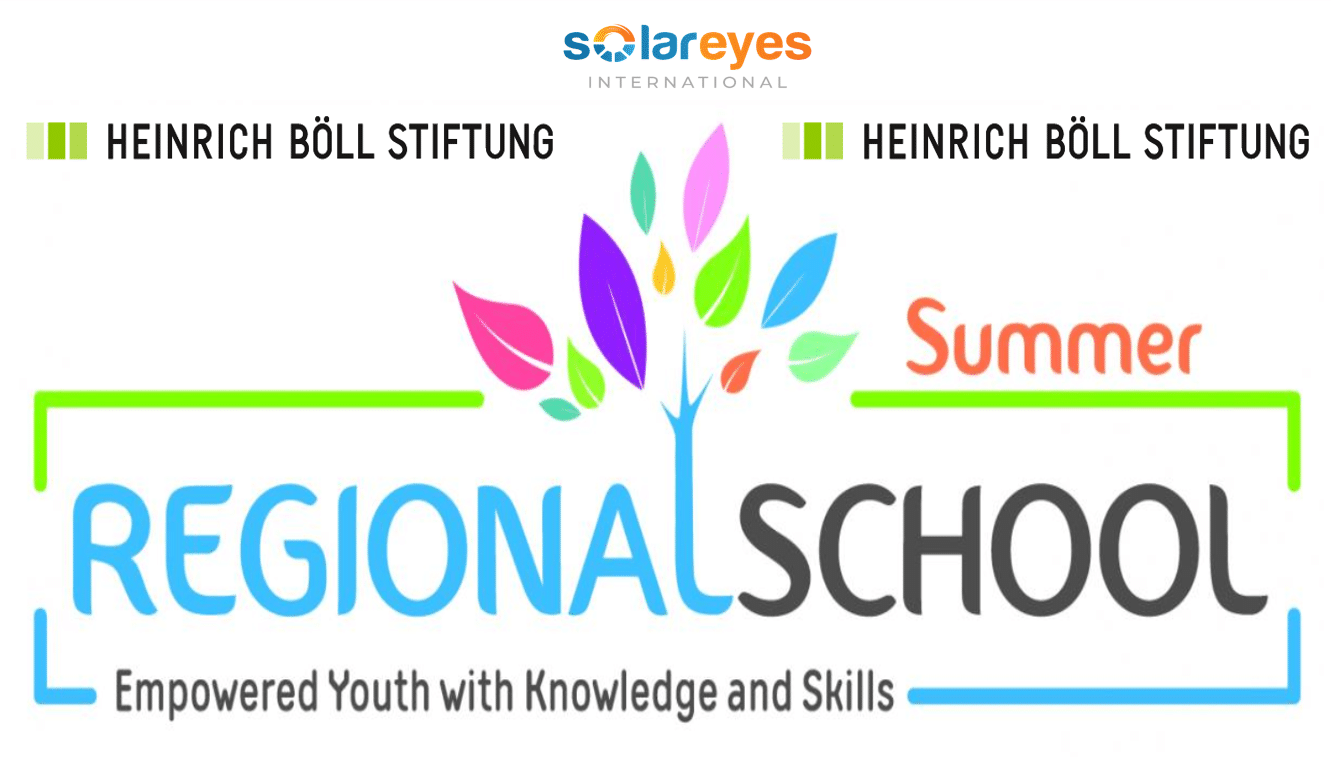
Call for Applications: Heinrich Böll Stiftung 9th MENA Regional Summer School 2023 – Jordan
The Heinrich Böll Foundation, represented through its offices in Rabat, Tunis, Ramallah and Beirut, welcomes applicants from the MENA region to apply for the 9th Regional Summer School that will take place from 29 July to 05 August 2023 in Jordan, under the title
“It’s More than Just Food: Agroecology and Sustainable Agriculture towards Equitable and Justice-based Food Systems in the MENA Region”.
The School aims to provide young professionals from civil society, youth and community initiatives, activists and researchers a space to exchange, debate and learn about the multiple dimensions of food systems, the water-energy-food nexus and community-supported sustainable agricultural practices towards food sovereignty.
Through inputs, group work sessions and field trips, participants will learn about the different perspectives regarding achievements, progress, constraints and shortcomings of food systems in the MENA region.
As the world’s population approaches 8 billion people, nearly double what it was in 1975, demand on food has naturally been on the rise.
Although global food production has grown and even far exceeded what is needed, our current food systems fall short on achieving the UN’s Sustainable Development Goals, especially Goal 2 to “End hunger, achieve food security and improved nutrition and promote sustainable agriculture”.
In fact, the number of people suffering from hunger, malnutrition and food insecurity is constantly increasing, especially among the poorest and most vulnerable. According to the UN’s 2022 Sustainable Development Goals Report, as many as 828 million people suffered from hunger in 2021 and about 150 million more people suffered from hunger in 2020 compared to 2019.
The report also reveals how 1 in 10 people worldwide suffer from hunger and 1 in 3 people (2.3 billion people) lacked regular access to adequate food. So why are our food systems failing us?
Global crises like the COVID-19 pandemic and the Ukraine-war, not to mention extreme natural and climate-induced disasters, have exposed the fragility of food systems and supply chains as they have resulted in food shortages and soaring food prices.
This has driven many across the world to search for more sustainable, fair, inclusive and gender-just, efficient, and nutrition and health-based food systems. Many communities across the globe are now transforming food systems and exploring alternative economic models, as opposed to globalized free-trade markets, contributing to communities’ resilience and food sovereignty.
They are also practicing localized and community-supported agroecological and other sustainable and environmentally-friendly farming methods. These models and practices will be explored in depth in hbs’ 9th Regional Summer School.
The MENA is among the regions most riddled by food scarcity, malnutrition and poverty. In 2020, the region’s share of the world’s “acutely food insecure people” was 20%, which is disproportionately high considering it only accounts for 6% of the world’s population.
Even before the COVID-19 pandemic, the UN estimated that in 2019, 55 million people in Arab States (13% of the population) are suffering from hunger, especially in conflict-riddled countries such as Syria, Yemen, Iraq, Libya, Somalia and Sudan.
This is particularly concentrated among refugees from Yemen and Syria. Additionally, nearly half the countries in the region have high to very high prevalence of stunting among children. At the same time, Arab states have the second highest rate of obesity and overweight after the Americas, which is also a serious health problem, but indicating the inequitable distribution of the region’s resources.
Food systems and related policies have thus underperformed in the provision of adequate and healthy food for the region’s population and have resulted in increased dependency on imported goods, thus increasing vulnerability during disruptions to global food supply.
As for food production in the region, the policies of governments have generally favored water and energy-intensive large-scale agricultural projects that are highly dependent on toxic agrochemicals and genetically modified seeds.
All the while, they have neglected and failed to protect and support rural, traditional and small-scale farmers producing healthy and economically, culturally and socially accepted food that the region has depended on for millennia.
Egypt’s Nile Delta and countries of the Fertile Crescent had historically been known for the production and export of agricultural produce, especially wheat and other essential crops.
Today, the region is highly dependent on food imports, even for essential crops, putting it in a high vulnerability situation during international disruptions to supply.
In recent decades, water scarcity has become a major challenge in the MENA region. According to most references, MENA countries make up the majority of the top 10 poorest countries in water resources, which is expected to be exacerbated by the impacts of climate change.
In this regard, agriculture currently accounts for ¼ of global greenhouse gas emissions causing global warming. This begs the question of how countries of the region can increase food production while properly managing the already scarce water supply.
Similarly, while the heavy dependence on fossil fuel resources in the region persists, there have been many efforts to increase the share of clean renewable resources, so how can this transformation be inclusive, socially and economically fair for all, serve sustainable agricultural practices and help countries meet their climate commitment and ambitions.
The Regional Summer School will explore the need for comprehensive integrated resources management through the water-energy-food nexus to achieve food sovereignty and sustainable food systems.
On the other hand and in response to all these challenges in food systems, de-centralized and community supported agroecology and food sovereignty movements have been on the rise in the MENA region.
They are joining international movements like La Via Campesina in calling for justice-based food systems, the protection of indigenous lands and small farming, and food sovereignty. Participants in the Summer School will get the opportunity to learn more about these movements and explore networking and alliance building at the regional level.
They will also address ways to engage with governance bodies in their countries and promote for more inclusive and participatory decision-making on agriculture and food systems.
THE REGIONAL SUMMER SCHOOL: Call for Applications: Heinrich Böll Stiftung 9th MENA Regional Summer School 2023 – Jordan
The Heinrich-Böll-Stiftung organizes Regional Summer Schools to empower young change-makers and to spark debates on important current environmental issues. The Summer School will provide participants with interesting insights and different viewpoints from the region and offer an excellent platform for exchanging ideas and sharing experiences.
The program promotes networking among civil society actors, researchers, and activists working in the fields of citizen participation and intervention in the urban space, local governance, sustainable development, climate action, gender and environment.
Against this background, this year’s Summer School strives to develop a transdisciplinary socio-economic, environmental and political understanding of food systems in the MENA region. It aims to explore a collective approach, bringing together different perspectives and experiences to contribute to a regional debate and network towards food sovereignty and agoecology-oriented policies and practices.
Moreover, the Summer School intends to address the topic of food systems from a governance lens as well as from the perspective of decentralized people-led actions, both of which are based on the principles of democratic participation, accountability, transparency, responsiveness, equity and inclusiveness.
By doing so, hbs aims to address broader social, political, cultural and economic issues related to food systems that affect different social groups. One key dimension to understanding the complexity of food systems is gender.
Accordingly, the Summer School will address the historical role of women’s involvement in agricultural production in the region and explore emancipatory models promoting for gender equality and gender-sensitive approaches to natural resource management and food production.
The Regional Summer School will bring together 25 young professionals from civil society, academia and private sector from different countries of the MENA region in order to a) strengthen their capacities to engage in sustainable approaches and solutions for food system management, b) promote regional networking and allow for an exchange of experiences, and c) facilitate interdisciplinary learning experiences between stakeholders from different sectors and countries.
The School offers an inclusive space where young professionals from different backgrounds can exchange and debate about food systems and its implications on humans and society. Food production will be the lens through which social and political patterns and dynamics in the MENA region will be analyzed.
Believing that citizens are important drivers for change and the promotion of alternative models, a special focus will be given to community-supported initiatives, environmentally-friendly innovative solutions, cooperatives and environmental activist groups in order to lead and facilitate socio-economic and ecological transformations.
The sub-topics of this year’s School will be as follows:
- “The Politics of Food”: Current Global Food Systems, the Right to Food and International Law
This session will critically analyze current global and MENA region food systems and supply chains from political, economic, health and environmental aspects and assess its impact on human rights.
It will give an overview of international law and frameworks addressing the right to food including the 2030 Agenda for Sustainable Development. Additionally, it will address current food production trends and needs in the MENA region and examine legal frameworks for protection of small-scale farming and food sovereignty in general.
- Agroecology & Sustainable Agriculture: From Theory to Practice
This session will explore agroecology, permaculture and other forms of sustainable agricultural practices as alternatives to large-scale monoculture. It will look into the political and socio-economic objectives of agroecology movements, their efforts to mobilize and spread their ideals and practices.
- Sustainable Resource Management & Alternative Models in the MENA Region
This session will address integrated resource management and the water-energy-food nexus towards sustainable agricultural practices and the safeguarding of precious and dwindling resources in the MENA region.
It will explore successful existing alternative food production and marketing models and how they may be strengthened. Participants will get the opportunity to meet leaders of initiatives, exchange experiences, discuss food production models that may be developed in the MENA region, and visit success stories in the field.
- Agriculture and the Climate & Biodiversity Crises
This session will give participants a general overview on how current agricultural practices contribute to the climate and biodiversity crises, but also how sustainable agriculture, especially through local knowledge, can contribute to natural preservation and mitigating and adapting to climate change.
It will look into current climate and biodiversity agreements and processes and the role of agriculture. Additionally, it will introduce participants to the global efforts of green groups and organizations around the world to combat the production and use of agrochemicals and fossil fuels.
5) Movement Building & Governance
This final session will also introduce participants to agroecology and food sovereignty movements from around the world, their work and future aims. The session will be an opportunity for participants to learn networking, alliance building, and campaigning skills and techniques.
It will also tackle the means to address local governance bodies and holding duty-bearers accountable towards more participatory and inclusive forms of governance towards sustainable agriculture and food sovereignty.
The program of the Summer School will be practice-oriented to enhance the capabilities of participants in working with local communities as well as with their counterparts in local governance.
Beside thematic inputs from experts, the Regional Summer School will try to engage different stakeholders (decision-makers, civil society initiatives, entrepreneurs, etc.) and provide a space for co-creation of ideas.
The aim is to enhance the skills of the participants on how to adopt interdisciplinary and inclusive approaches that could emerge from a multi-stakeholder dialogue and lead to a socio-environmental change regarding fair food systems in the MENA region.
Through group work sessions and lectures, the participants will learn problem solving by design thinking and sharing experiences with other participants and experts.
At the same time, the Summer School will be a unique opportunity to exchange and learn about the challenges and achievements regarding food production in the different countries of the region, to network with like-minded change makers from other MENA countries and to create relationships that ultimately serve shared values and goals for the future of the MENA region.
APPLICATION PROCESS: Call for Applications: Heinrich Böll Stiftung 9th MENA Regional Summer School 2023 – Jordan
Participants will be selected based on their expertise in related fields, their specific motivation to participate as well as according to a proportional representation of different countries and sectors.
We are looking for engaged and motivated candidates from civil society, academia and activist groups working on different kinds of actions related to agriculture and food system management aiming for behavioral, social or political change.
Eligible candidates should be between the ages of 23-38 and reside in one of the following MENA countries: Jordan, Palestine, Lebanon, Tunisia, Morocco, Libya, Egypt, Algeria, Iraq and Syria.
In order to be considered for the Regional Summer School 2023, please submit the following documents:
- A filled out Application Form;
- An up-to-date Curriculum Vita (CV);
- A Short Paper (2 pages maximum) focusing on a topic related to the overall theme of the Summer School and show the applicant’s knowledge/expertise in this field as well as his/her ability to work independently and creatively.
- To this end, the applicant should choose a topic from within the subject area and point out its relevance to his/her respective local or national context, e.g. by introducing an exemplary project, a current debate, etc. The paper can be written in the form of an essay or a short academic paper. Accepted languages are English and Arabic.
The Summer School will be conducted in Arabic and English with simultaneous translation. Good command of the English language is important since preparation materials will be circulated beforehand, a large part of which will consist of English literature.
The participants are therefore asked to indicate their English level in the application form. Selected participants may be asked to prepare a short presentation on issues related to food systems and agriculture in their country or community and on how their projects and/or research addresses these issues and challenges.
Travel, accommodation and board costs of the participants will be covered by the Heinrich Böll Foundation.
Please submit your application documents via email.
Applicants from Palestine and Jordan are asked to submit their application documents in English or Arabic to:
Heinrich Böll Foundation – Palestine and Jordan, Mr. Nidal Atallah ([email protected])
Applicants from Morocco are asked to submit their application documents in English, Arabic, or French to:
Heinrich Böll Foundation – Rabat, Ms. Fatima-Zohra Lamrani ([email protected])
Applicants from Tunisia and Egypt are asked to submit their application documents in English, Arabic, or French to:
Heinrich Böll Foundation – Tunis, Ms. Emna Fourati ([email protected])
Applicants from Lebanon, Iraq, and Syria are asked to submit their application documents in English or Arabic to:
Heinrich Böll Foundation – Beirut, Mr. Christophe Maroun ([email protected])
Deadline for application is 7 May 2023.
MORE INFORMATION AND APPLICATION HERE
FOLLOW US ON SOCIAL MEDIA
Follow us on LINKEDIN, FACEBOOK, TELEGRAM GROUP and WHATSAPP.
HOW TO SIZE A SOLAR SYSTEM – 5 clear steps anyone can follow
HOW TO START A SOLAR COMPANY – do these 6 things and make money through solar
WHY SOLAR ENERGY? – 10 reasons to go solar
ABBREVIATIONS IN THE SOLAR ENERGY SECTOR

